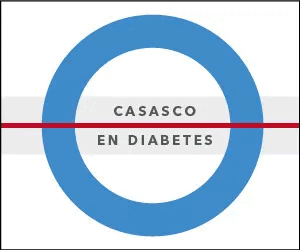Type 2 diabetes mellitus: individualizing the dietary plan: When to choose a ketogenic diet versus intermittent fasting?
Keywords:
diabetes, ketogenic dietAbstract
The nutritional recommendations of the American Diabetes Association (ADA) and the European Association for the Study of Diabetes (EASD) include low-carbohydrate diets (LWD) among meal plans 1. The ketogenic (CD) diet, also called the Keto diet, is a type of DBCH that restricts the total daily amount of CH to < 50 g, or less than 10% of daily calories, with 70-80% of calories derived from fat1, the primary source of fuel. As a result, a state of ketosis is established with the consequent decrease in blood glucose levels.
Recent meta-analyses of randomized controlled trials consistently demonstrated the efficacy of CD in glycemic control and stability (fasting glycemia/HbA1c), reduced body weight, and increased insulin sensitivity, in people with type 2 diabetes (PDT2) and overweight/obesity compared to other diets2,3. In adults with T2D, evidence shows that CD is safe 1, and the approach is individualized by assessing the risks and benefits. A possible risk of CD is hypoglycemia, which involves periodic medical supervision and adjustment of the insulin therapy plan and antidiabetic drugs, to minimize its appearance. A major challenge of CD in PDT2 is long-term adherence4 and commits to regular re-evaluation2,3. CD, as an option to be considered within the dietary approach to PDT2, is effective in reducing HbA1C and the requirement for antihyperglycemic drugs. In the coming years, there will be information available about the factors that determine which people would benefit from a specific dietary approach, assessing the behavioral, cultural and environmental characteristics that are conditioning factors for success in building healthier lifestyle habits, individualizing the food plan.
References
I. Li S, Du Y, et al. Adherence to ketogenic diet in lifestyle interventions in adults with overweight or obesity and type 2 diabetes: a scoping review. Nutrition and Diabetes 2023;13(1):16.
II. Rafiullah M, Musambil M, David SK. Effect of a very low-carbohydrate ketogenic diet vs recommended diets in patients with type 2 diabetes: a meta-analysis. Nutr Rev 2022;80:488-502.
III. Zhou C, Wang M, Liang J, He G, Chen N. Ketogenic diet benefits to weight loss, glycemic control, and lipid profiles in overweight patients with type 2 diabetes mellitus: a meta-analysis of randomized controlled trails. Int J Environ Res Public Health 2022;19:10429.
IV. American Diabetes Association. Facilitating positive health behaviors and well-being to improve health outcomes. Standards of Care in Diabetes 2024. Diabetes 2024;47(sup1):S77-S110.
Downloads
Published
How to Cite
Issue
Section
License
Copyright (c) 2024 on behalf of the authors. Reproduction rights: Argentine Society of Diabetes

This work is licensed under a Creative Commons Attribution-NonCommercial-NoDerivatives 4.0 International License.
Dirección Nacional de Derecho de Autor, Exp. N° 5.333.129. Instituto Nacional de la Propiedad Industrial, Marca «Revista de la Sociedad Argentina de Diabetes - Asociación Civil» N° de concesión 2.605.405 y N° de disposición 1.404/13.
La Revista de la SAD está licenciada bajo Licencia Creative Commons Atribución – No Comercial – Sin Obra Derivada 4.0 Internacional.
Por otra parte, la Revista SAD permite que los autores mantengan los derechos de autor sin restricciones.





































